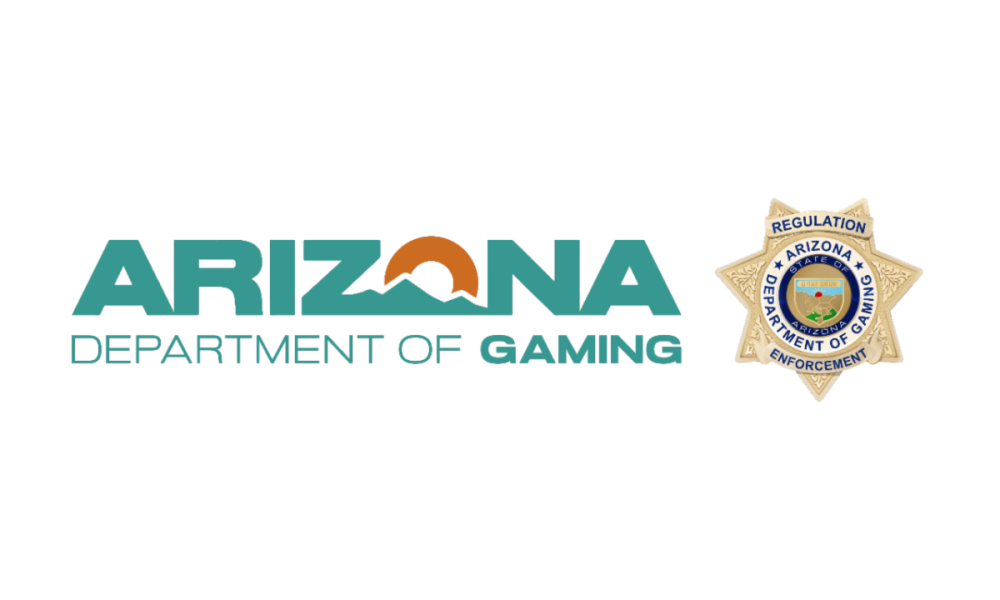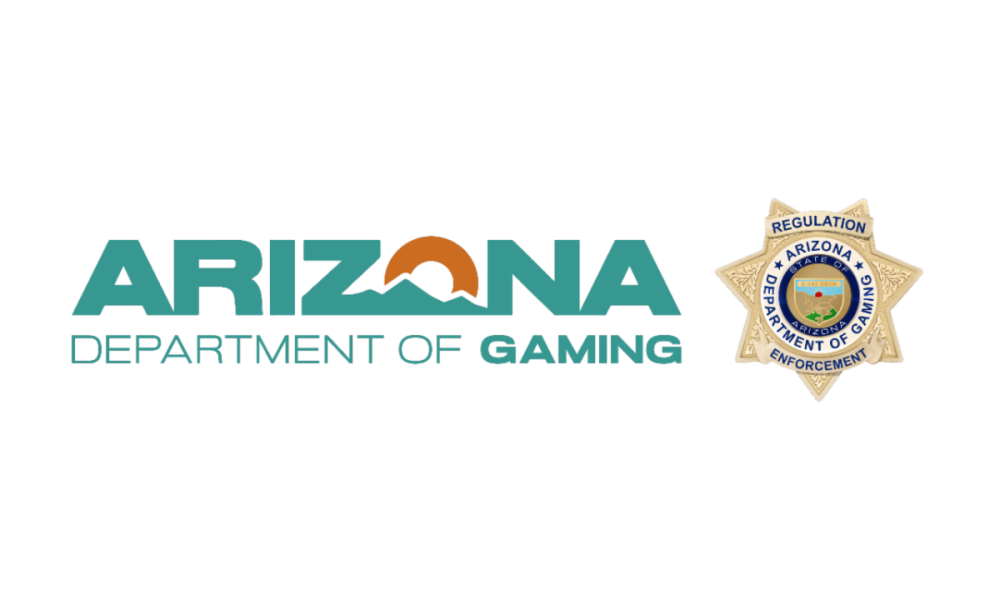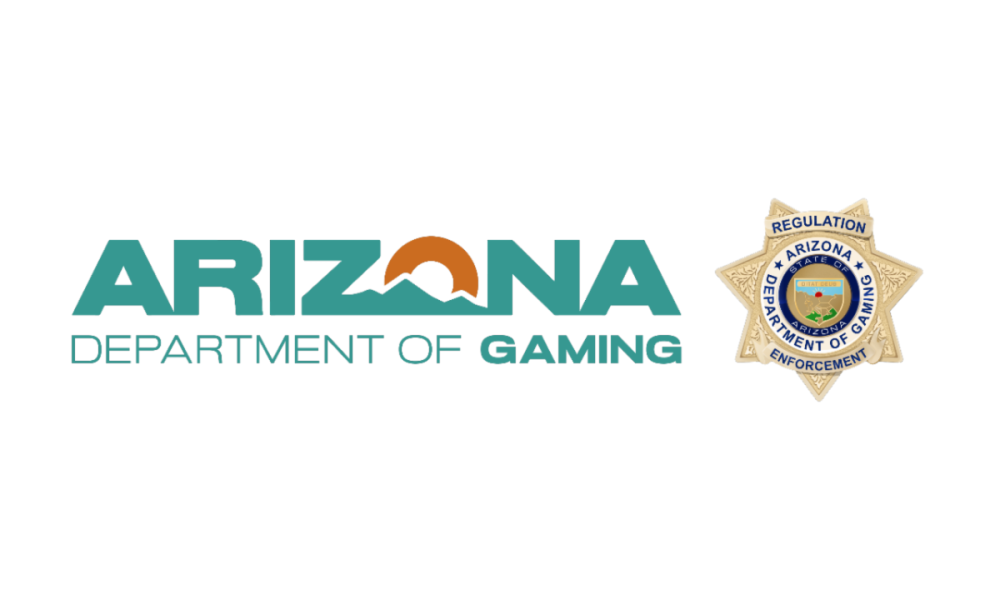ADG
Arizona Department of Gaming Reports $43.6 Million in Tribal Gaming Contributions for the Fourth Quarter of Fiscal Year 2024
The Arizona Department of Gaming (ADG) announced today $43,586,004 in tribal gaming contributions to the Arizona Benefits Fund for the fourth quarter of Fiscal Year (FY) 2024. This amount represents an approximate 3.3 percent increase when compared to the same quarter of FY 2023.
“Celebrating yet another remarkable milestone in tribal gaming, we are thrilled to announce that Arizona has witnessed yet another record-breaking year,” said Jackie Johnson, Cabinet Executive Officer, ADG. “With a record contribution of $157.2 million to the Arizona Benefits Fund, our tribal partners have once again demonstrated their unwavering commitment to the prosperity of our state and local communities. We extend our heartfelt gratitude to our tribal partners for their continued dedication and collaboration.”
The Arizona Benefits Fund receives 88 percent of tribal gaming contributions, providing significant dollars to support instructional improvement in schools, trauma and emergency care, tourism, and wildlife conservation throughout the state.
Tribal gaming contributions to the Arizona Benefits Fund for the 4th quarter of the State’s FY 2024 are as follows:
| Instructional Improvement Fund/Education ………………………………………………….. | $22,474,451 |
| Trauma and Emergency Services Fund ………………………………………………………….. | $10,861,632 |
| Arizona Department of Gaming operating costs ………………………………………………. | $3,308,133 |
| Arizona Wildlife Conservation Fund ……………………………………………………………….. | $3,103,324 |
| Tourism Fund ………………………………………………………………………………………………. | $3,103,324 |
| Problem Gambling Education, Treatment and Prevention …………………………………… | $735,140 |
FY 2024 Qtr 4 Total: Tribal Gaming Contributions to the Arizona Benefits Fund….. $43,586,004
Per the Arizona Tribal-State Gaming Compacts, tribes with casinos also contribute a percentage of their Class III gross gaming revenue to cities, towns, and counties. Total tribal contributions to the Arizona Benefits Fund in addition to cities, towns, and counties in the state has amounted to over $2.2 billion since FY 2004. Currently, there are 25 Class III casinos in Arizona, which ADG regulates in partnership with Arizona tribes.
ADG
Arizona Department of Gaming Releases January Sports Betting Figures

Bettors in Arizona wagered approximately $864 million on sports in January of 2025, according to a new report by the Arizona Department of Gaming. This represents an approximate 22.3% increase when compared to January of 2024.
The state collected approximately $5.3 million in privilege fees in the month. You can view the full January report on the ADG website: LINK.
The post Arizona Department of Gaming Releases January Sports Betting Figures appeared first on Gaming and Gambling Industry in the Americas.
ADG
Arizona Department of Gaming Issues Multiple Cease-and-Desists

The Arizona Department of Gaming (“ADG”) has taken decisive enforcement action this week against multiple unlicensed and unregulated gambling operators—both domestic and international—that have been unlawfully targeting Arizona residents. As part of its ongoing efforts to protect the public and uphold Arizona gaming laws, the Department has issued several cease-and-desist orders to unlicensed entities offering unlawful wagering activities.
The named operators are allegedly providing access to various illegal online gaming services, including slot-style casino games, “sweepstakes” platforms, sports wagering, horse race betting, and peer-to-peer wagering exchanges. These operations are not licensed by the State and fail to meet Arizona’s strict regulatory requirements, thereby posing significant consumer protection and financial risks to Arizonans.
The following unlicensed operators have been issued cease-and-desist orders:
- Sweepstakes:
- ARB Gaming, LLC d/b/a Modo.us
- MODO.us (online casino) / BITMODO LLC
- Modo
- Epic Hunts
- Event Wagering Sportsbook:
- Generiz
- Peer-to-Peer Exchange:
- ProphetX
- Offers Multiple Types:
- MyBookie
- BetUS.com
The active operations of these companies and online websites in Arizona are alleged to be felony criminal enterprises, and each operator has been directed to desist from any future illegal gambling operations or activities of any type in Arizona. Due to the unregulated and illegal online gaming offerings on these sites, operators are claimed to be in violation of Arizona gaming laws, including:
- Promotion of Gambling (Felony) — A.R.S. § 13-3303.
- Illegal Control of an Enterprise (Felony) — A.R.S. § 13-2312.
- Money Laundering (Felony) — A.R.S. § 13-2317.
Each aforementioned operator has been directed to immediately cease all online (or other) gambling operations and activities in Arizona, and take the necessary steps to immediately prevent and exclude Arizona residents and visitors from gambling on their websites.
“Illegal gaming—no matter the platform or format—has no place in Arizona. Whether it’s sweepstakes, online casino-style games, or unauthorized sports betting, if an operation exists outside of the state’s legal and regulatory framework, we are prepared to take enforcement action,” stated Jackie Johnson, Director of the ADG. “Illegal gambling is not just unlawful—it’s stealing from our economy and undermining the safeguards that protect consumers. The Department fully supports the licensed and regulated operators who are doing things the right way—operating within the bounds of the law, contributing to Arizona’s economy, and providing the protections that only a regulated market can ensure.”
Consumer Protection Advisory:
As illegal online gaming activity continues to rise, the ADG urges all residents and visitors to be cautious when participating in gaming—whether online or in person. Regulated gaming offers important consumer protections—helping ensure fair play, data security, accountability, and a safer overall experience.
Many online platforms currently accessible in Arizona are neither licensed nor regulated, exposing users to significant risks, including fraud, identity theft, and financial loss. Because these operations fall outside the state’s regulatory authority, ADG cannot assist with complaints or disputes involving unregulated or illegal gaming activities—often leaving victims with no recourse for recovering lost funds. It is important to remember: just because you can download the app, access the website, and play the games does not mean the platform is legal or safe.
Individuals are encouraged to verify the legitimacy of any gaming platform before placing bets or engaging in gameplay. To protect yourself, always use legally authorized and state-regulated operators. A complete list of authorized casinos, event wagering operators, fantasy sports operators, and off-track betting for horse racing is available on ADG’s official website: gaming.az.gov.
How to Report Suspicious Gaming Activity, Fraud, or Identity Theft:
If you encounter what appears to be an illegal gaming website, app, or an operation impersonating an authorized Arizona casino or licensed operator, take the following steps:
- Document the website URL, app, business name, and any promotional materials associated with the platform or operator.
- Report itto ADG at [email protected] and the Arizona Attorney General’s Office Consumer Information and Complaints Unit at (602) 542-5763 or by visiting azag.gov/consumer.
- Cease activity on the platform and monitor financial accounts for unauthorized transactions.
- If you suspect identity theft, report it to the Federal Trade Commission (“FTC”): for help in English, go to IdentityTheft.gov, and for help in Spanish, go to RobodeIdentidad.gov.
ADG takes complaints about all illegal gambling seriously. To report any form of suspected illegal gambling, visit gaming.az.gov/about/contact-us, call ADG at (602) 255-3886, or email [email protected]. Reports can be made anonymously.
The post Arizona Department of Gaming Issues Multiple Cease-and-Desists appeared first on Gaming and Gambling Industry in the Americas.
ADG
ADG PSA: Consumer Protection Alert – Rise in Fraudulent Online Casinos Targeting Arizonans

The Arizona Department of Gaming (“ADG”) is issuing this Consumer Protection Alert to inform Arizonans of a concerning nationwide trend that has now reached Arizona. Fraudulent operators are falsely claiming that legitimate Arizona casinos have launched online gaming platforms. These illegal online casino platforms are presenting themselves as legitimate platforms by offering illegitimate or illegal gaming services. Online casinos (often referred to as “igaming”) are not legal in Arizona. Any claims otherwise should be treated as highly suspicious. These scams not only put players at financial risk but also undermine the integrity of Arizona’s regulated gaming industry.
ADG has received multiple reports of fraudulent online casinos targeting Arizonans, as well as complaints from patrons who have been misled. These scams are being widely disseminated through social media advertisements directing consumers to download apps and visit websites, and are enticing unsuspecting consumers to spend money on illegitimate games.
The Arizona Department of Gaming urges residents to verify the legitimacy of any online gaming platform before engaging in play. Many of these operations are not legal or regulated, leaving users vulnerable to fraud, identity theft, and other serious risks. Due to their unregulated nature, ADG is unable to resolve complaints and disputes arising from unregulated and illegal gaming sites, leaving victims with little to no chance of recovering lost funds. It is important to remember that just because you can download the app, visit the website, and play the games, it does not mean it is a legitimate and legal gaming platform.
In light of these developments, the Department encourages both Arizona residents and visitors to visit our website to find a list of all regulated casinos and licensed event wagering and fantasy sports operators legally taking bets in Arizona. The list can be found on the Department’s website at gaming.az.gov. Legal, regulated operations provide important consumer protections not found in the illegal market, helping ensure a safer experience for participants.
The Dangers of Illegal Online Casinos:
Fraudulent online casinos often mimic reputable platforms, using familiar branding, flashy advertisements, and enticing promotions to lure victims. These unregulated operations leave participants vulnerable to:
- Financial loss through fake gaming platforms or fraudulent prize fees.
- Identity theft resulting from shared personal or financial information.
Common Red Flags of Illegal Platforms:
These deceptive platforms often use tactics such as:
- Mimicking branding of legitimate Arizona casinos, including similar or actual logos and names.
- Enticing promotions that appear too good to be true, such as excessive bonuses or guaranteed wins, luring players into providing sensitive information.
- Incorrect Website URL/Mobile App – Fraudulent sites often use web addresses that closely mimic legitimate casino names but have slight misspellings or different domain extensions (e.g., .net instead of .com).
How to Protect Yourself:
- Check before you bet: verify the licensed and regulated casinos and operators in Arizona.
- Be skeptical of advertisements or promotions on social media promising guaranteed wins or no-risk gaming.
- Avoid sharing personal or financial information with unverified sources.
- Look for sites that include resources for dispute resolution, as well as self-exclusion, responsible gaming messaging, or a toll-free helpline number.
Reporting Suspicious Activity, Fraud, or Identity Theft:
If you encounter fraud, identity theft, or suspicious online gaming operations, apps, or websites impersonating a casino or claiming to be a licensed operator in Arizona, please take the following steps:
- Document the website URL, app, business name, and any promotional materials associated with the fraudulent operator.
- Report it to ADG at [email protected] and the Arizona Attorney General’s Office Consumer Information and Complaints Unit at (602) 542-5763 or by visiting azag.gov/consumer.
- Cease activity on the platform and monitor financial accounts for unauthorized transactions.
If you suspect identity theft, report it to the Federal Trade Commission (“FTC”): for help in English, go to IdentityTheft.gov and for help in Spanish, go to RobodeIdentidad.gov.
The post ADG PSA: Consumer Protection Alert – Rise in Fraudulent Online Casinos Targeting Arizonans appeared first on Gaming and Gambling Industry in the Americas.
-

 gaming3 years ago
gaming3 years agoODIN by 4Players: Immersive, state-of-the-art in-game audio launches into the next generation of gaming
-
EEG iGaming Directory8 years ago
iSoftBet continues to grow with new release Forest Mania
-
News7 years ago
Softbroke collaborates with Asia Live Tech for the expansion of the service line in the igaming market
-
News7 years ago
Super Bowl LIII: NFL Fans Can Bet on the #1 Sportsbook Review Site Betting-Super-Bowl.com, Providing Free Unbiased and Trusted News, Picks and Predictions
-
iGaming Industry8 years ago
Rick Meitzler appointed to the Indian Gaming Magazine Advisory Board for 2018
-
News7 years ago
REVEALED: Top eSports players set to earn $3.2 million in 2019
-
iGaming Industry8 years ago
French Senator raises Loot Boxes to France’s Gambling Regulator
-
News7 years ago
Exclusive Interview with Miklos Handa (Founder of the email marketing solutions, “MailMike.net”), speaker at Vienna International Gaming Expo 2018








